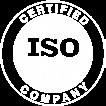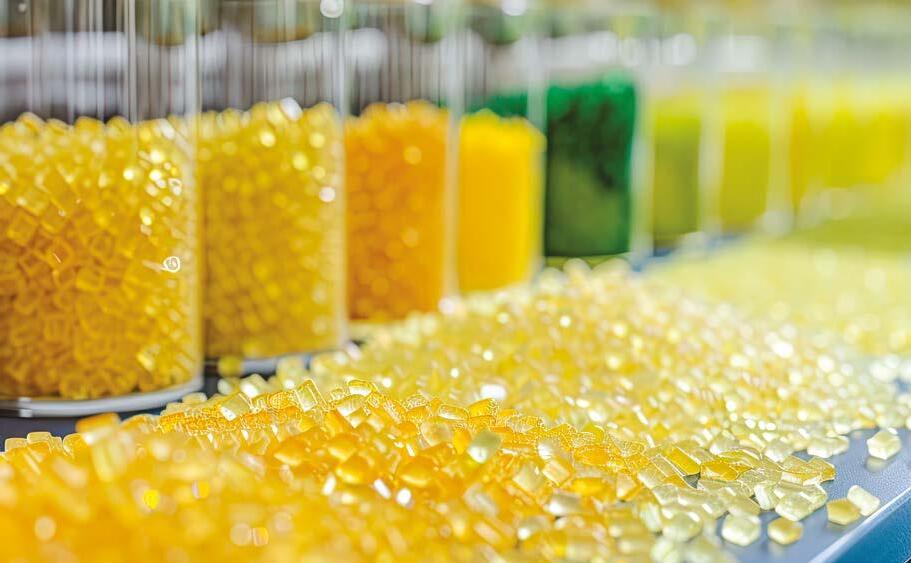

METAL REPLACEMENT POLYMERS
INDUSTRIAL WAREWASH
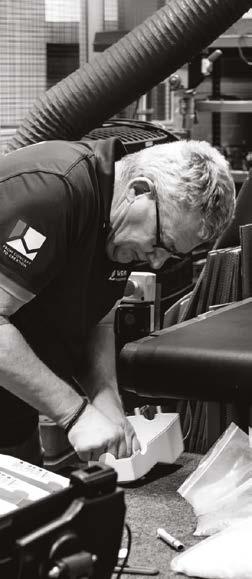

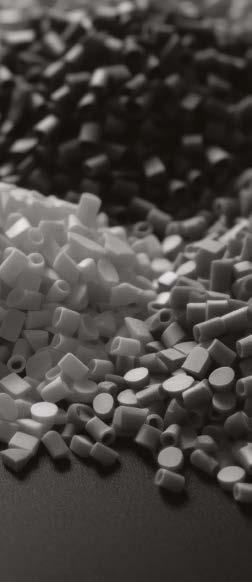
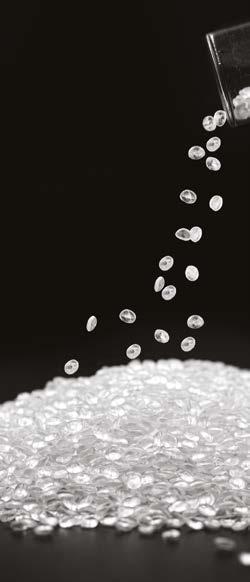
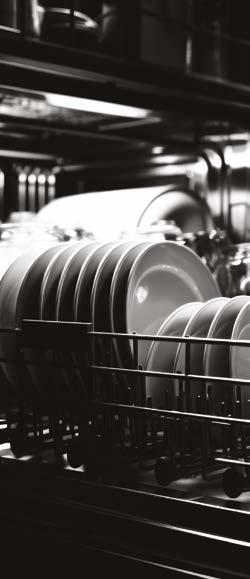
8 4 12 20 26 30 INJECTION MOULDING ABOUT WSM INDUSTRIES METAL REPLACEMENT THE RIGHT PLASTIC WAREWASHING GLOBAL APPROACH

ABOUT WSM INDUSTRIES
TAKING YOUR IDEA FROM CONCEPT TO CREATION

WSM INDUSTRIES is a global tool maker and injection moulder. With vast experience across product design, prototyping, tool making, injection moulding and post moulding services, we deliver bespoke solutions throughout the full production lifecycle.
WHY CHOOSE WSM INDUSTRIES? OUR EXPERIENCE
WSM INDUSTRIES has over 25 years’ experience in mould tool making and injection moulding. We specialise in technical polymers for replacement metal components using materials such as V0-rated flame and toxicity plastics, enabling us to supply into demanding sectors such as aerospace, medical, marine, recycled products, transport and the water industry.
Our global supply network allows us to supply finished goods worldwide from the USA, Asia and Europe while a team of in-house project engineers, tool designers and component specialists manage all projects from our UK headquarters.
By combining our tooling and moulding function on the same site, we are able to validate and commission tooling projects within days of the tools being completed to our exacting standards.

At WSM INDUSTRIES, we don’t outsource. Instead, we deliver a complete in-house service, so you have a single point of contact throughout your project and can be assured of WSM INDUSTRIES quality during each phase.
No matter the size of your project, we work alongside you from concept to creation , with dedicated support from our design, production and technical experts to ensure you achieve the ideal result.
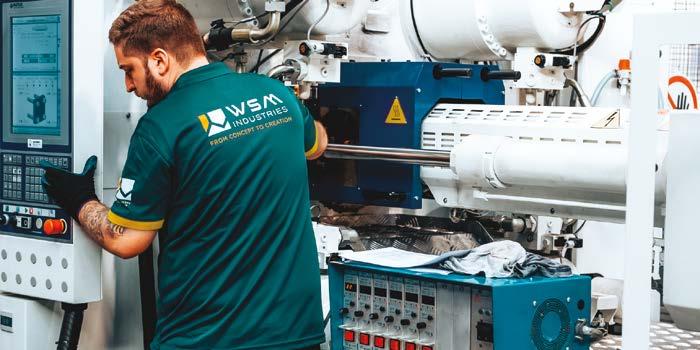
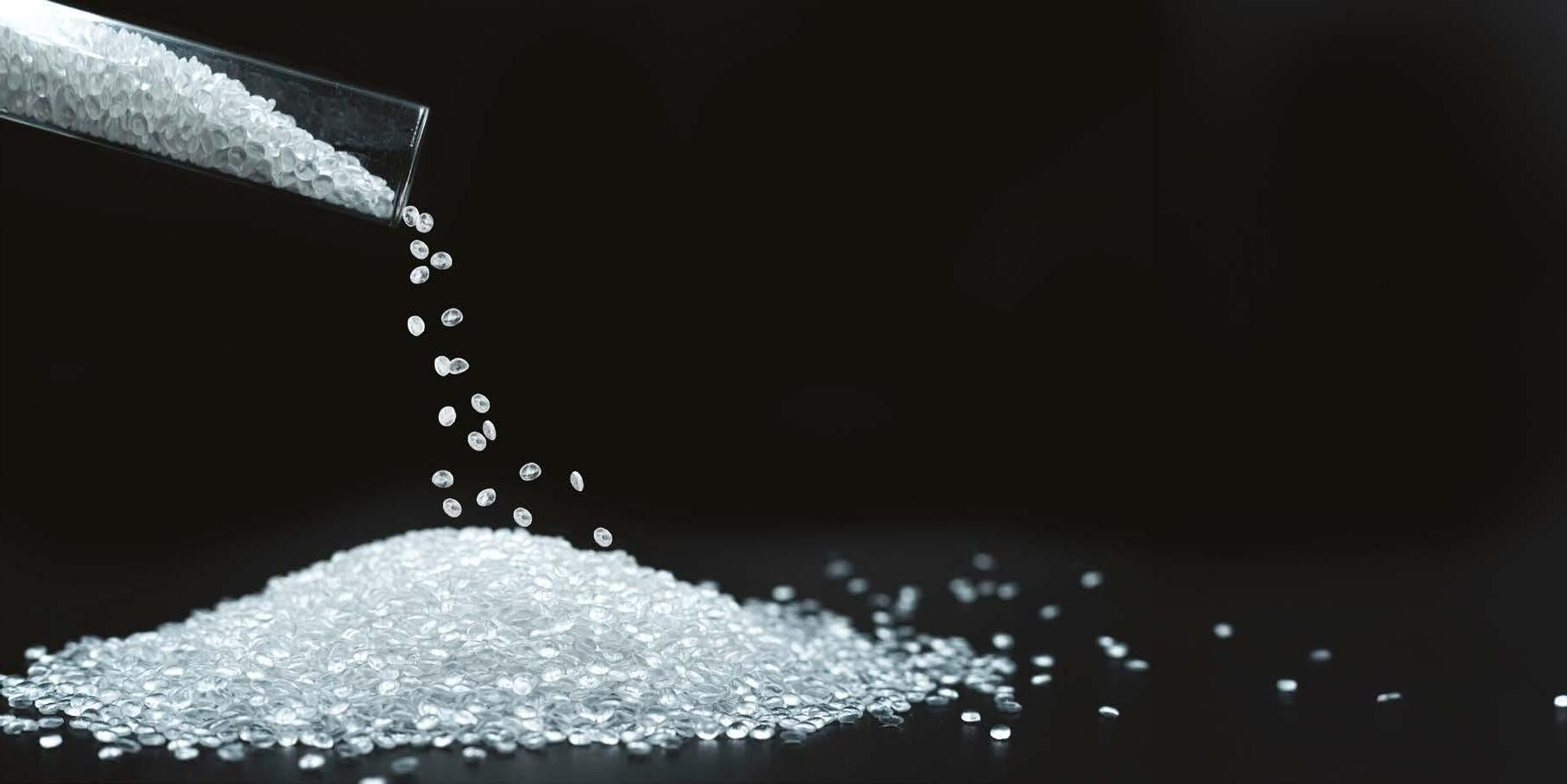
INJECTION MOULDING
WSM INDUSTRIES’ EXTENSIVE KNOWLEDGE OF PLASTIC POLYMERS MEANS THAT WE CAN HELP CUSTOMERS MAKE THE CORRECT CHOICE AND PROVIDE SOLUTIONS FOR KNOWN ISSUES WHEN WORKING WITH PLASTICS
BESPOKE INJECTION MOULDING PRODUCTION
STATE-OF-THE-ART FACILITIES AND EQUIPMENT
Whether you require small or large components, recycled material, engineered polymers, single-component production or whole-product assembly, we offer the complete solution.
That’s largely thanks to our modern injection moulding facility, where we run a machine range from 20T up to 650T that allows us to accommodate all sizes of projects and components.
COMPREHENSIVE
PLASTIC INJECTION MOULDING SERVICES
To ensure you end up with a product that perfectly meets your specification, WSM INDUSTRIES provides an extensive service offering. This includes product design and refinement support where we work with you to iron out the details that make all the difference to the finished product.
We also provide prototype components so you can be certain about your design before committing to largescale production. Where a high level of dimensional accuracy is required to ensure that all components function correctly, we offer close tolerance and critical moulding. Meanwhile, for specialist projects requiring small quantities, we are set up to deliver low-volume technical production.

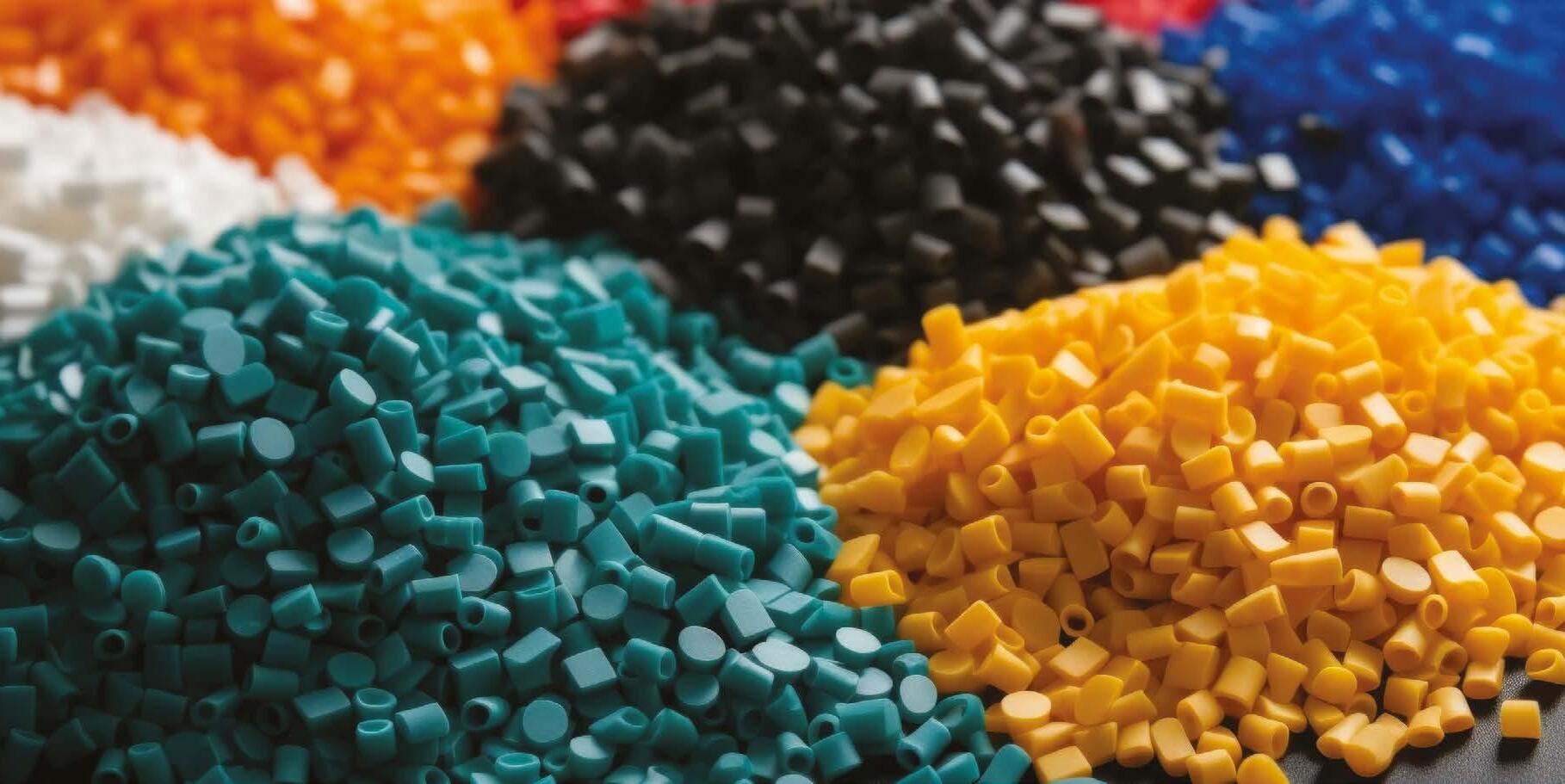
METAL-REPLACEMENT POLYMERS
AT WSM WE OPERATE AT THE CUTTING EDGE OF POLYMER TECHNOLOGY
WORKING WITH ENGINEERING POLYMERS AS WELL AS HIGHPERFORMANCE POLYMERS WHICH PUSH THE BOUNDARIES OF WHAT PLASTICS CAN DELIVER IN THE METAL-REPLACEMENT MARKET
HIGH –PERFORMANCE MATERIALS
450
High temperature resistance
Steam resistance
Hight wear resistance
High chemical resistance
HIGH-PERFORMANCE POLYMERS ENGINEERING POLYMERS
Have a thermal resistance >150°C
Examples of hard-wearing high-performance polymers
INCLUDE:
PEEK: Polyetheretherketon
PES: Polyethersulfon
PI: Polyimide
250
Engineering grade
Good wear resistance
Structural
Are classified by a temperature resistance within 100 - 150°C
Examples of engineering polymers INCLUDE:
PA6.6: Polyamide
PA6 G: Cast Polyamide (LFX with AF lubricant)
POM: Polyoxymethylene (acetal)
PETP : Polyethylene terephthalate (PET)
General purpose
Low stress
Good bonding
Good formability
150 AMORPHOUS
MAKING METAL REPLACEMENT
A COMPETITIVE ADVANTAGE
Manufacturing and product development are both faster paced and more complex than ever, with metal replacement often a key to reducing weight, cost and production times.
High-performance resins are used to deliver ultra-high strength, temperature resistance and cost-efficient production in industries ranging from automotive to energy production.
FLEXURAL MODULUS
AMORPHOUS THERMOPLASTICS
• Ultem® (30% glass-filled) 1,300,000
• Polysulfone (20% glass-filled) 800,000
• PVC 481,000
• Ultem® 480,000
• Acrylic 480,000
• Noryl® 370,000
• Radel R® 350,000
• Polycarbonate 345,000
• Kydex® 335,000
• Polystyrene (HIPS) 310,000
• PETG 310,000
• ABS 304,000
600,000 PEEK 590,000
Nylon (6 cast) 420,000500,000
Acetal (Homopolymer) 420,000
Nylon (6/6 extruded) 410,000 PET 400,000
Acetal (Copolymer) 370,000 PBT 330,000 PVDF (Kynar®) 310,000
Polypropylene 225,000 (Homopolymer)
Polypropylene 215,000 (Copolymer)
• PAI (polyamide-imide) 711,000
• Vespel® Polyimide SP-1 700,000
• Vespel® Polyimide SP-21 550,000
• Vespel® Polyimide SP-3 475,000
• Vespel® Polyimide SP-22 450,000
• Vespel® Polyimide SP-211 450,000
The flexural test measures the force required to bend a beam under three-point loading conditions - providing an indication of a material’s stiffness when flexed. The data is often used to select materials for parts that will support loads without flexing.
30,000
Flexural modulus Flexural modulus Flexural modulus Stiffness (psi) Stiffness (psi) Stiffness (psi)
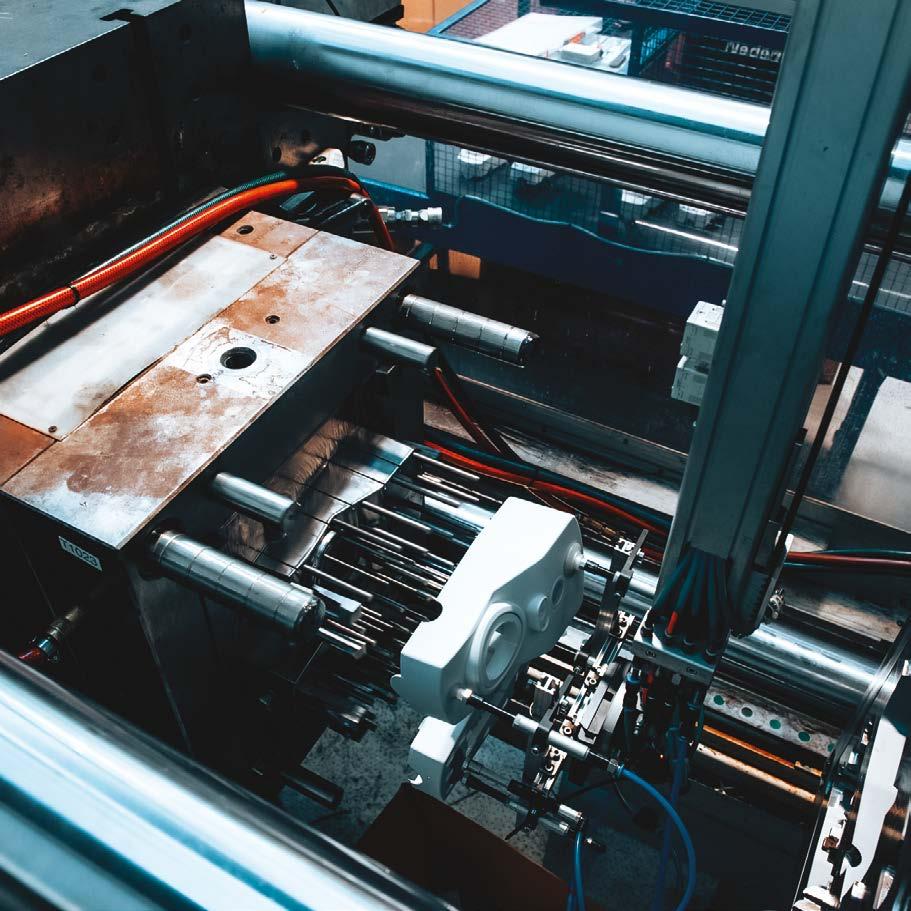
PROVEN OUTPERFORMANCE FASTER TO FINISH
Engineering thermoplastic polymers are lighter and stronger than aluminium, magnesium alloy, aluminium alloy and other metals, so they offer great potential for replacing traditional metal parts. Their performance, coupled with thinner profiles, reduces total cost and weight of parts. In industrial warewash applications, lighter weight translates into other advantages including:
• Functional benefits through part integration
• Good formability
• Design innovation potential
• Higher corrosion resistance
• Improved surface finish, with integral colours
• Easier handling and lower shipping costs
Another advantage of engineering thermoplastics for metal replacement is their shorter processing cycle. Where die casting and sheet metal construction is typically a six-step process, thermoplastics go from granules to the finished part in just three steps, which can:
• Result in faster lead times
• Reduce cost
• Facilitate rapid volume increase
SELECTING THE RIGHT PLASTIC FOR YOUR PRODUCT

There’s a lot to consider when choosing the right plastic resin for a part, and material can have a huge influence on production lead times, cycle times, finished part quality and cost.
At WSM INDUSTRIES we can offer standard, engineering, and highperformance polymers through our
extensive supply chain, with our project team providing guidance at each stage to identify the ideal material for your product.
We even offer guidance and support on alternatives such as recycled and sustainable polymers as part of an environmentally responsible project.
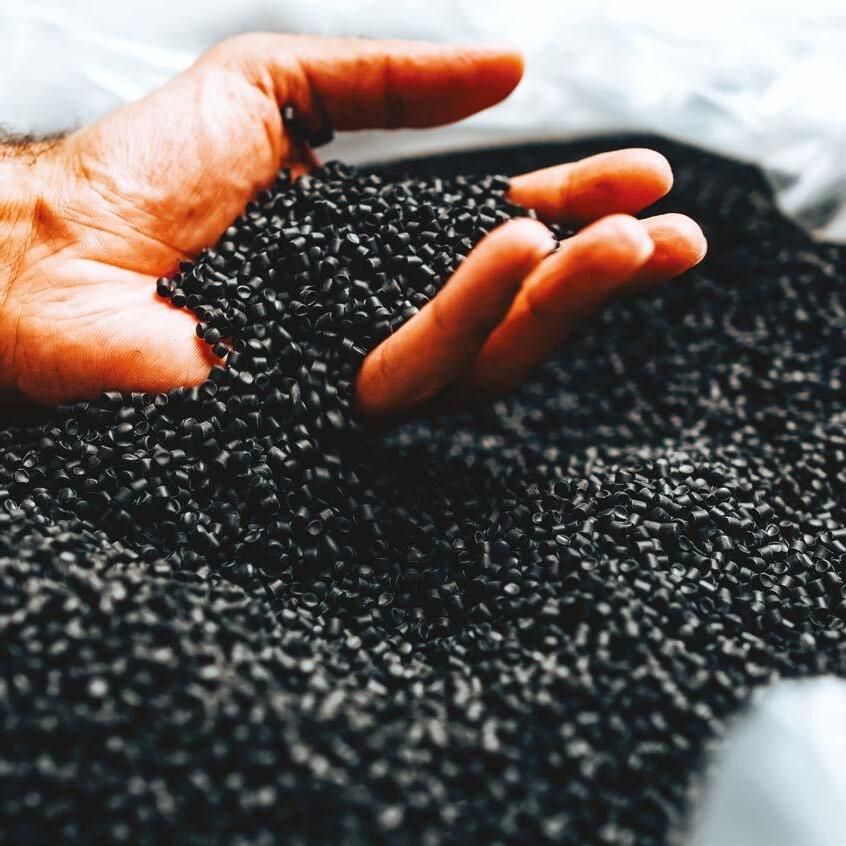
ADVANCED POLYMERS
NEXT-GENERATION
MATERIALS ZYTEL INCLUDES:
• Engineering thermoplastic materials provide consistent strength and stiffness, and outstanding impact performance for metal replacement. They also offer excellent creep resistance, can maintain structural performance at high temperatures and resist corrosion, qualities metal can’t always match
• The Zytel® family of products is available in a variety of grades that sustain high strength and stiffness over a wide range of temperatures, chemicals, and moisture exposure
• Zytel® HTN is widely used to replace metal parts that must withstand high temperature tolerances while reducing cost and weight
• In both PPA grades and structural grades, Zytel® HTN solutions enhance performance in a diverse array of applications
• Zytel® HTN
• DuPont™ Zytel® HTN is one example, a highperformance polyamide resin which is a partially aromatic nylon. Most Zytel® HTN resins are polymers known as PPA (polyphthalamide), offering the combination of highest performance and processability
• Zytel® HTN grades are next-generation products, delivering an excellent balance of strength, stiffness and impact performance, compared to not just metal, but to other glass-fibre reinforced polyamides
COMPARED TO PAMXD6, A POLYARYLAMIDE, ZYTEL® HTN53 OFFERS:
• Superior impact and elongation-to-break values
• Lower density
• Lower mould tool temperature, 90°C versus 140°C+
• Less flash
• Faster setup
WEIGHT REDUCTION BENEFITS
A GROWING OPPORTUNITY
The growing trend for metal replacement is extending across every major industrial sector with an increase in light weighting requiring engineering plastics for demanding components exposed to stress, vibration, heat and aggressive concentrated chemicals.
DID YOU KNOW?
ABS HAS A DENSITY OF 1.2 COMPARED TO ALUMINIUM (2.7)

Plastic makes up nearly half a vehicle’s volume but only 10% of its weight
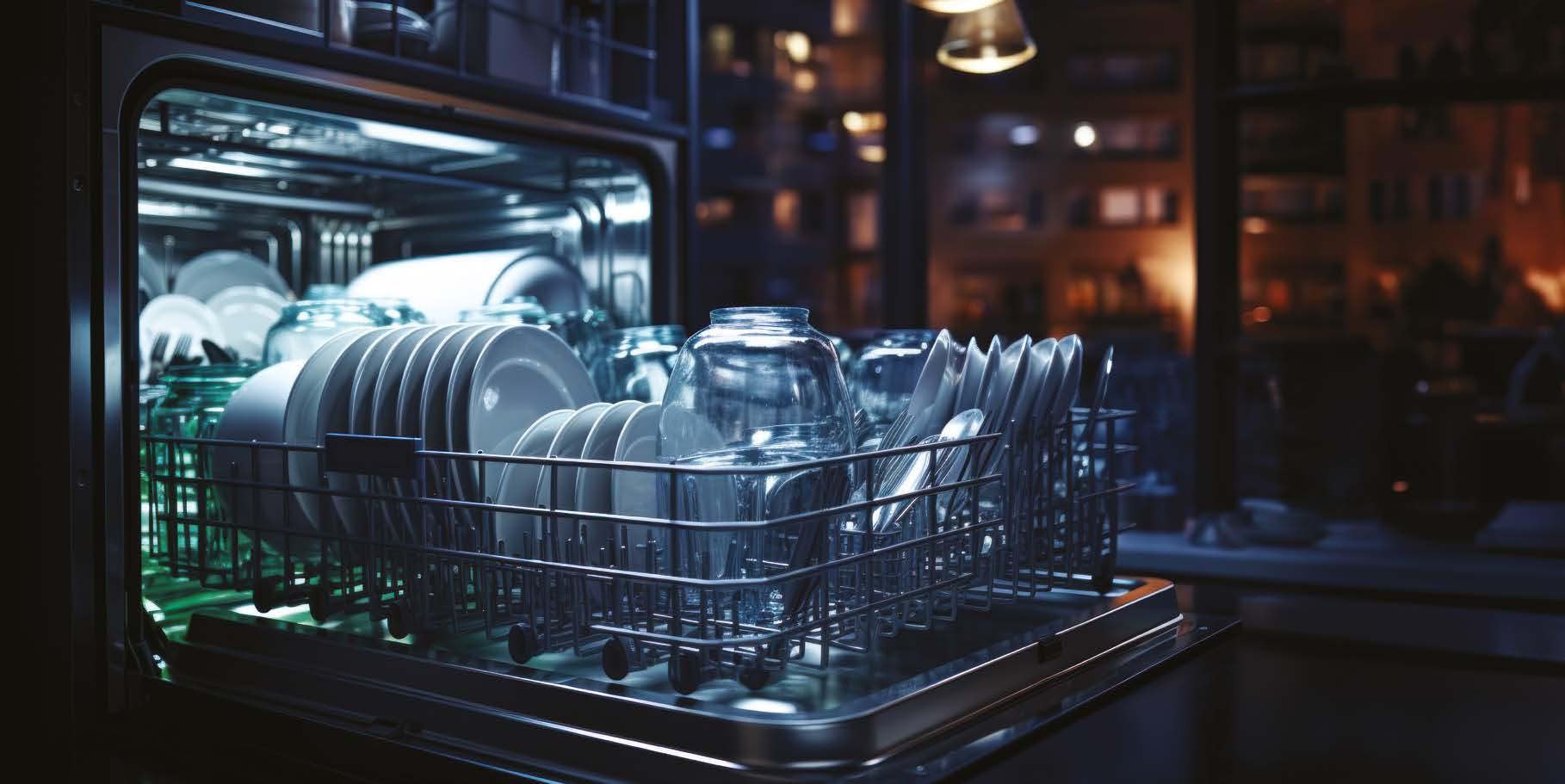
WAREWASHING
WITHIN THE PRODUCTION OF INDUSTRIAL WAREWASHERS, WSM SEES OPPORTUNITIES FOR METAL REPLACEMENT IN COMPONENT AND CASING MANUFACTURE

THE BENEFITS OF REPLACING METAL WITH PLASTICS IN COMMERCIAL DISHWASHERS
CORROSION PREVENTION
Internal components manufactured in plastic can be designed for excellent chemical compatibility compared to metal parts, offering longer service life and reduced maintenance requirement.
INNOVATION & DESIGN
External plastic cladding allows designers the ability to create innovative concepts that may not be possible when shaping metal. The use of plastics also reduces production and manufacturing costs, passing those savings on to the buyer.
WEIGHT REDUCTION
The use of plastic panels and components offers a significant overall product weight reduction compared to metal, helping minimise shipping costs while facilitating handling and installation.
LONGEVITY
When it comes to scrapes and dents it’s much easier to repair or replace a plastic casing than metal, which rusts when scraped.
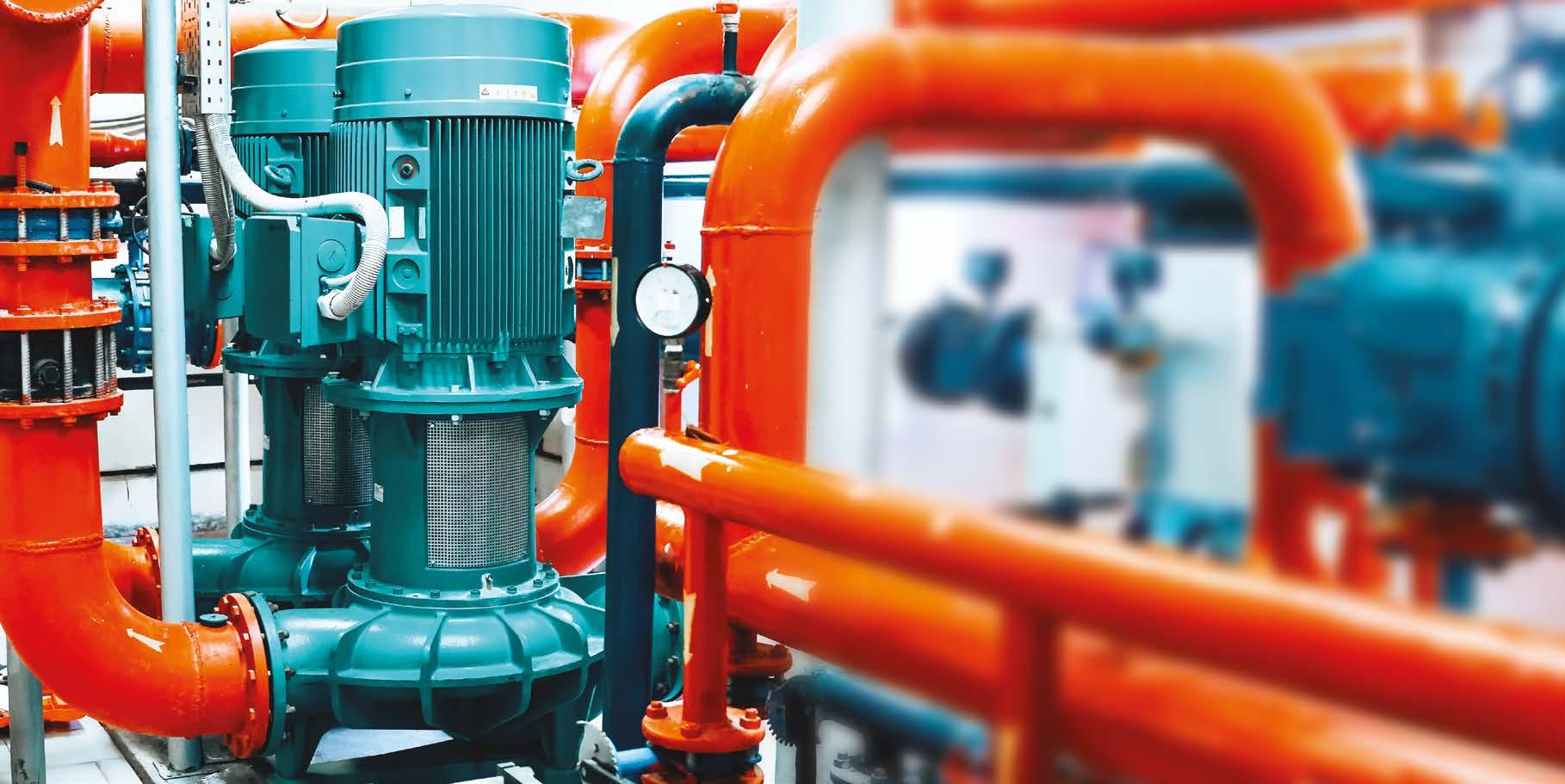
NORYL IMPELLER
CASE STUDY
METAL-REPLACEMENT IMPELLER SOLUTION
Amid challenging global economic conditions and an increasingly competitive marketplace, manufacturers are constantly seeking ways to reduce product weight, lower production costs and improve performance.That’s why producers in industries as varied as electronics, aerospace, medical and automotive commonly turn to metal-replacement plastics for their components.
Manufacturing in plastic is an attractive option for several reasons. Plastic’s lower density compared to metal provides a weight reduction while its pliability offers greater design freedom with the ability create complex, intricate shapes.
Meanwhile, plastic offers safety benefits and extensive product life courtesy of its flame, corrosion and impact-resistant properties while part consolidation – where the total number of parts is reduced by merging suitable components – delivers significant cost savings.
However, there are many factors to consider to ensure that plastics are able to achieve the same performance as metals including temperature resistance, flexural strength and durability.
That’s never truer than in hygienecritical applications where enduse parts and components are in contact with potable water and equipment producers around the world must ensure their systems comply with regional legislation such as the European Drinking Water Directive.
Tool making and injection moulding specialist WSM INDUSTRIES is firmly established as a leader in metalreplacement plastics, collaborating with some of the biggest names in the aerospace, automotive and medical industries.
WSM works alongside its partners throughout every project stage, including the design refinement and prototyping phases where
mould tools and end products are rigorously tested to ensure compliance.
That was why Flowserve, a world leader in flow control systems, turned to WSM to develop a mould tool for the production of a metalreplacement plastic pump impeller that would be suitable for drinking water applications up to 85°C Flowserve was looking to reduce the weight of its products without compromising on performance, which would allow it to lower production and shipping costs and consequently offer greater value to its customers.
After being approached, WSM’s technical team met with their Flowserve counterparts and began by assessing the part’s intended use and required properties.
Following a thorough review, WSM recommended the thermoplastic resin NORYL™ as the ideal replacement for cast metal.
THE NORYL™ FAMILY OF RESINS OFFERS COMBINATIONS OF ADVANCED POLYPHENYLENE ETHER (PPE) TECHNOLOGY WHICH OFFERS CHARACTERISTICS SUCH AS:
• High heat resistance
• Very low moisture uptake
• Long-term dimensional stability, even in high-temperature, water and humid conditions
• Very low specific gravity
• Good impact resistance, tensile strength and flexural strength
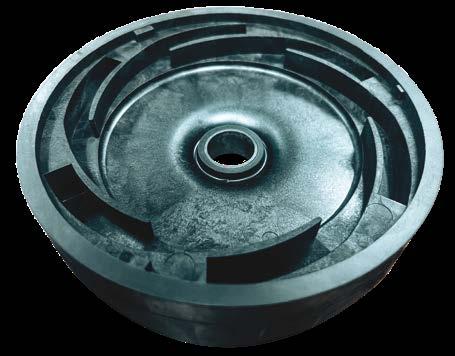
The use of NORYL™ makes the pump suitable for reverse osmosis plants and handling deionised and demineralised water where product contamination cannot be permitted.
Prototype mould tools were produced at WSM’s state-of-the-art tool room and NORYL™ impellers manufactured to trial in comparison with existing cast-metal models.
These trials highlighted a significant improvement in performance when using NORYL™ impellers, which achieved total head as high as 400 metres compared to 250 metre s for cast-metal models at 2,900 rpm .
Meanwhile, the NORYL™ impeller proved itself capable of operating at a working pressure as high as 29.5 bar while handling liquids up to 100°C.
Thanks to WSM’s comprehensive service offering, Flowserve was able to replace cast metal in its impeller production without compromising on component performance while the product comfortably achieved compliance with hightemperature drinking-water applications.
That’s in addition to the part’s reduced weight, which allowed Flowserve to lower the cost of manufacturing the component, equating to a significant saving.
GLOBAL APPROACH
MULTIPLE INNOVATION STRATEGIES
An opportunity this great can’t be met with one product, or one approach. That’s why most major material manufacturers have development and research centres spread across four continents, each offering dozens of high-quality thermoplastic and elastomer products, and thousands of grades.
In addition to this these manufacturers have proactively put in place science and collaboration systems that assist the many value chains they serve to be successful in reducing dependence on fossil fuels. We’re committed to discovering and developing lighter-weight alternatives to metal.


